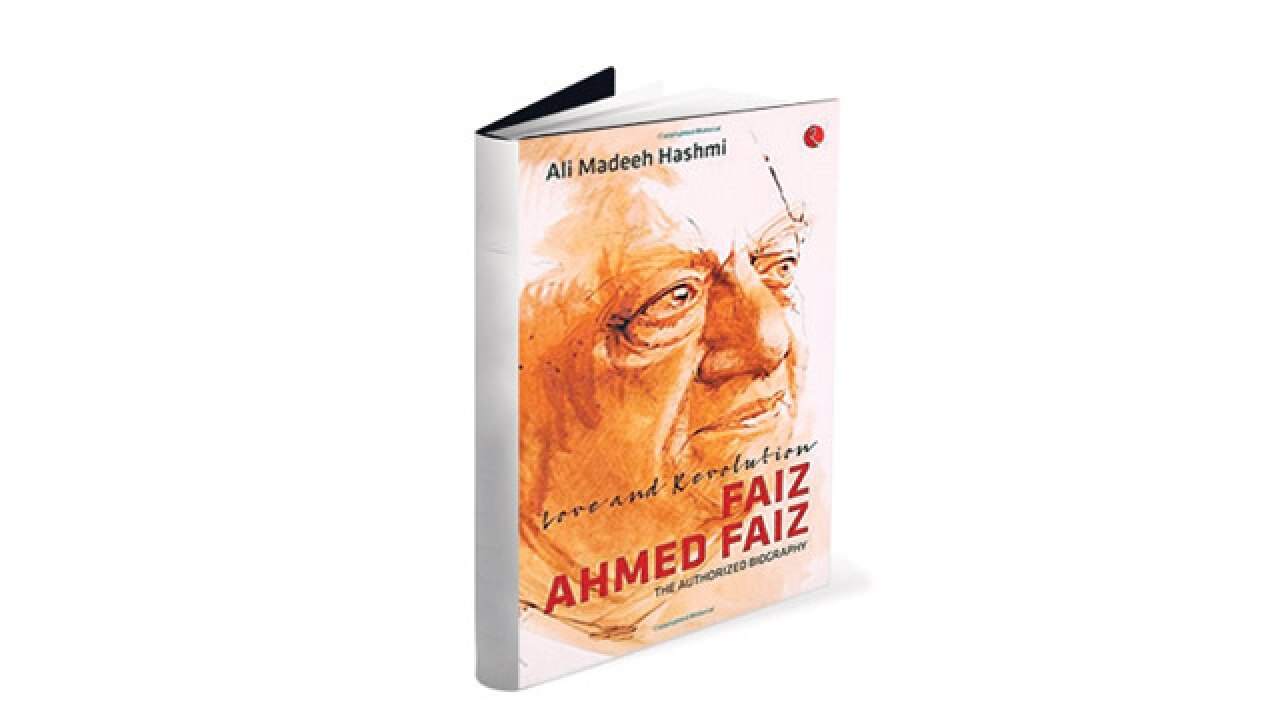
Faiz Ahmed Faiz, Pakistan's pre-eminent poet, has been wrapped in the consciousness of those who love his verse as a romantic, anti-authoritarian communist. He was indeed all of that, but in his own gentle, almost conformist, way. This "authorised biography" by his grandson Ali Madeeh Hashmi uncovers without flourish the many layers of his activities, which ranged from his active involvement in trade union activities before and after independence, his stint in the British Indian army, his dealings with the rulers of Pakistan, from Ayub Khan and Zulfiqar Ali Bhutto to Zia-ul- Haq, and his simple longing in the last years to spend time with his grandchildren in Lahore.
Hashmi, a psychiatrist by profession, does not psychoanalyse the poet's life. He writes with a sense of familial piety, but does not make too many compromises. The critics are duly mentioned – those on left as well as on the right, he writes, did not approve of his famous poem at the time of Independence, "Ye daagh ujala, ye shab gazeeda seher (This stained light, this night-bitten dawn)". Hashmi quotes Pakistani Marxist historian Syed Sibt-e-Hasan: "Those on the right said that it was a betrayal of the cause of Independence and that Faiz was against Pakistan…The critics on the Left said the poem was too vague, claiming that if the title was removed, it would be impossible to tell if the poem was about Independence."
What kind of a communist was Faiz? He was no agit-prop writer, much less a populist poet. Hashmi quotes Faiz recalling years later: "I worked in the trade union, but I couldn't bring myself to do any rallying and slogan-raising. I was just a worker."
Faiz was a popular poet, and his fame was not confined to the circle of progressive writers or connoisseurs. He used the traditional forms of ghazal (lyric) and nazm (poem), and, perhaps, the general reader was not flummoxed as the poet brought in new ideas along with the feelings of sadness, anger and happiness which everyone could identify with.
Faiz was a self-conscious craftsman, who grappled with form without ever abandoning it. He was not a spontaneous romantic, whose feelings and imagination overflowed into verse. Reflecting on the ghazal, Faiz says, "The pioneer of stretching the limits of ghazal was Ghalib. The second pioneer was Iqbal, who showed that you can talk about any subject in ghazal, provided that you keep the language that of ghazal."
Faiz never hesitated to take up any assignment from the state that came his way. And he tried to do what he could. When he became the editor of Pakistan Times and Imroze, Faiz organised an All India Muslim League Editors Conference in Delhi in 1947 where Jinnah spoke. After Independence, he became convenor of the Press Advisory Committee. When Bhutto prevailed upon him not to leave the country after the 1971 war and the emergence of Bangladesh, Faiz acquiesced. He became the cultural advisor and established the Pakistan National Council of the Arts (PNCA) of which he was chairman. It was during this period that Faiz mooted the idea of the International University of Taxila at a UNESCO conference in Yogyakarta, Indonesia. Hashmi writes: "Faiz briefed the conference about the vast Buddhist ruins which still existed at the site and proposed that an international university be constructed there for the study of Buddhism and the Pali language." He submitted a plan to the Pakistan government about it in 1974, but it did not work out.
Faiz was conscious of the need to build a cultural identity for Pakistan. He says, "When Pakistan was created, we only had the raw materials for a Pakistani nation. A nation evolves over centuries; nations are not born fully developed. So our first task was to establish the details of our nationality, its definition, its destiny, but what happened was that we got tangled up in ministries and presidentships, and in making and breaking governments and this dimension was ignored both by our intellectuals and politicians."
Faiz was no ordinary communist. That is why, he has survived the decline and fall of communism.